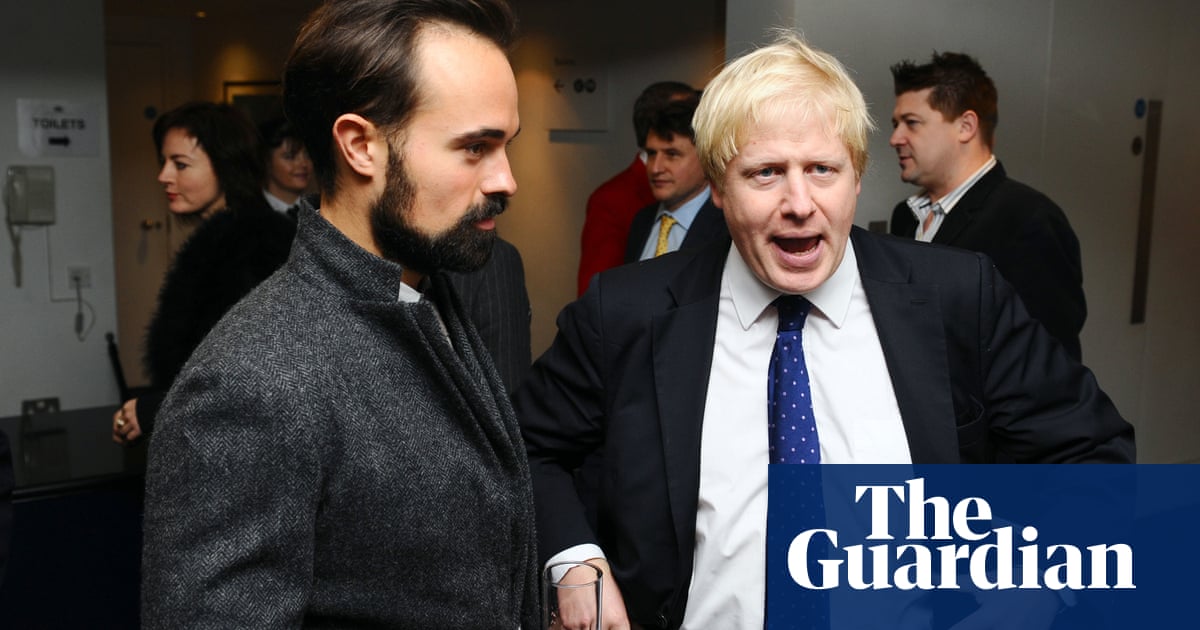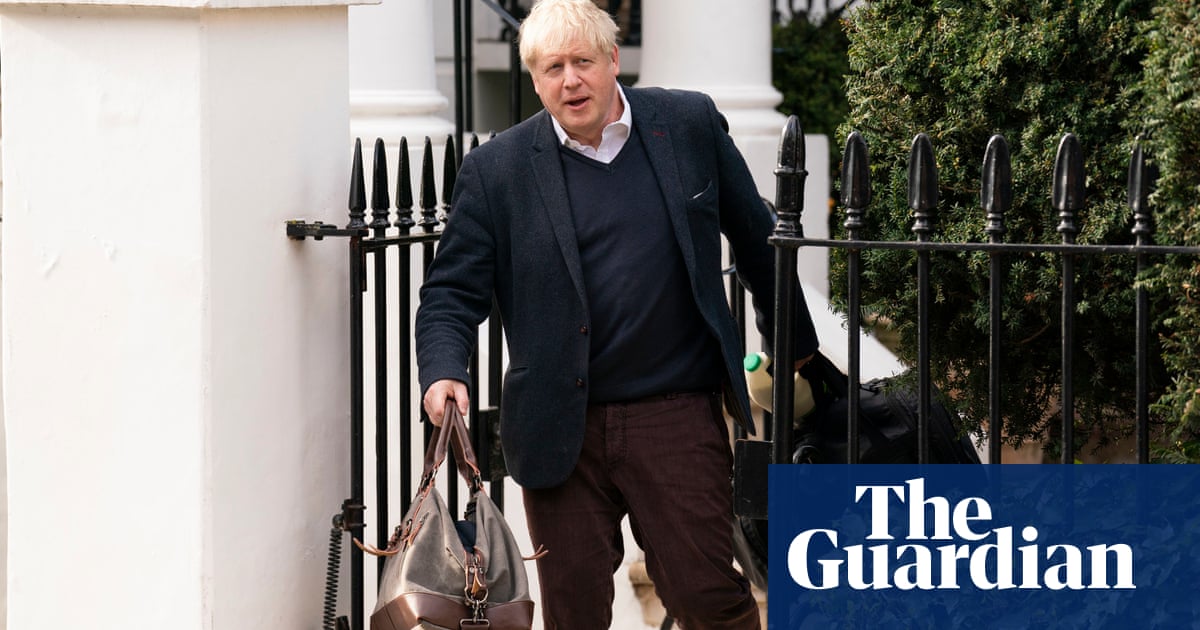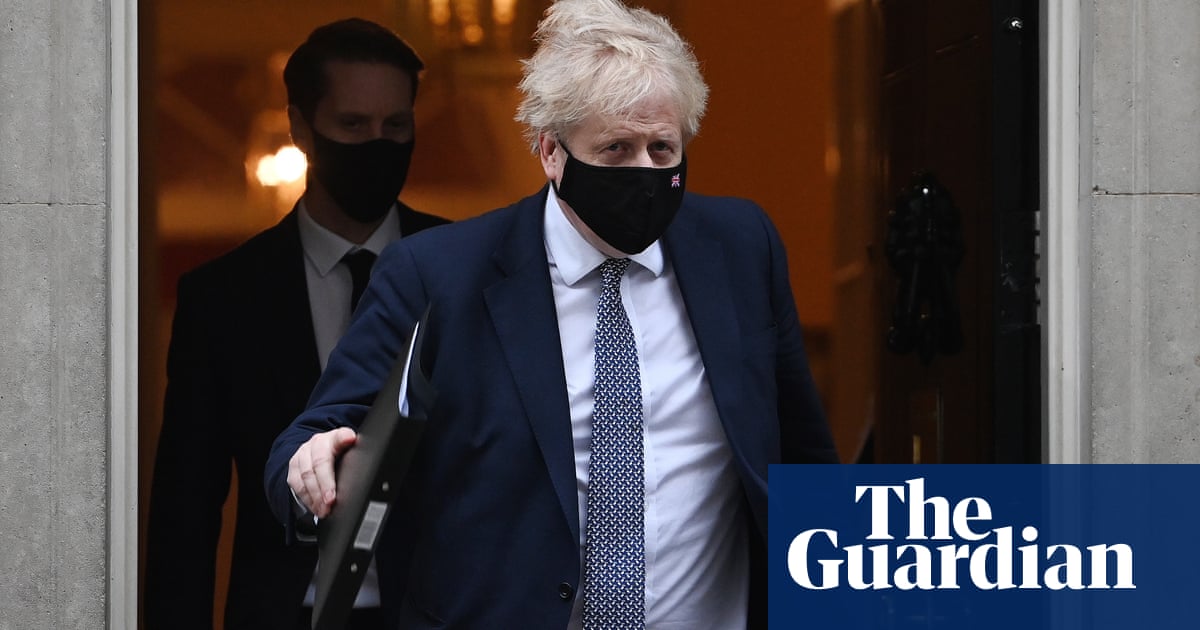
In a large state room in the heart of Downing Street, as they waited to deliver their fateful verdict to Boris Johnson, a group of cabinet ministers was forced to mingle awkwardly with the prime minister’s closest allies.
The delegation had slowly grown throughout Wednesday evening. Nadhim Zahawi, who had accepted the job of chancellor less than 24 hours earlier, home secretary Priti Patel, trade secretary Anne-Marie Trevelyan, cabinet office minister Kit Malthouse, Welsh secretary Simon Hart and transport secretary Grant Shapps were all present at various points. Even Simon Clarke, the Treasury minister and one of Johnson’s most loyal supporters from the earliest days of his leadership campaign, joined by phone. “Everybody in that room agreed the game is up,” said one present. “Every single person was there to say that.”
Those still batting for the prime minster did so with differing degrees of conviction. James Duddridge, Johnson’s ministerial aide, made polite conversation. Cabinet office minister Nigel Adams and communications director Guto Harri popped in and out. The most fervent attempts to save Johnson’s premiership were made by Ben Elliot, the Tory chairman, and Andrew Griffith, the No 10 policy unit chief whose lavish Westminster townhouse was used as Johnson’s leadership campaign headquarters just three years’ earlier.
The ministers were being made to wait. Even at this late hour, Johnson’s inner circle were making last-minute attempts to persuade them he should stay in power. As nerves gave way to hunger – the only sustenance was a slow stream of tea and biscuits – some ministers were taken off into separate rooms by Johnson’s remaining loyalists as they attempted to convince them the ship could be righted.
It was Zahawi that tried hardest to convince Johnson’s team that it was over. “The herd is stampeding,” he told them. “Once the herd stampedes, you’ve just got to get out of the way.” Griffith, whose dismissive approach angered several ministers during the tense evening, hit back. “What you need to understand,” he retorted, “is that the herd will get tired after a while and go back to eating grass.”
There were hold-ups before the group could see the prime minister. First, Johnson had to complete his bruising appearance in front of the liaison committee, made up of select committee chairs, which took a surreal turn as he was told about the mounting number of ministers waiting for him in No 10. By the time the mauling had finished, David Canzini, the deputy chief of staff, told insiders the appearance had been “about as bad as it is possible to be”.
With farcical timing, Johnson then had his regular update – by phone – with the Queen. Then the really difficult conversations began. First up was a meeting with Graham Brady, the chairman of the Tory 1922 Committee. He informed the prime minister – sat passively next to his chief whip, Chris Heaton-Harris – that party rules were likely to change to allow a second no-confidence vote in the prime minister, which he would surely lose. Johnson was polite in utterly rejecting the plea.
Only then, and only one by one, were the gathered cabinet ministers allowed to visit the prime minister to deliver their verdicts. By all accounts, the prime minister remained good-tempered, but there was no sign he was ready to accept any of the arguments presented to him. To some, he protested it was unfair he was being asked to give up the job he had coveted for so long. To others, he argued he had a mandate not through Tory MPs, but 14 million voters who backed him. He said he “owed it to them” to fight on. Some said he seemed strangely upbeat and had “plenty more juice in the tank”. It made it all the harder – but some found it unnerving.
“It’s bizarre that it’s become slightly Trumpian,” said one. “It’s all – ‘I’m not leaving, I see no ships, everything’s fine. One more push and we’ll get it right. None of this is my fault. I’ve been the victim of a stitch-up – if only the party understood just how good I was’. It’s weird.”
In fact, late on Wednesday evening, figures across Westminster and Whitehall began to worry about just how far Johnson would go in his refusal to relinquish power. Levels of denial inside the bunker had become all too much for one cabinet minister. “They’re all mad,” he despaired to a friend. “They’re all mad.”
By the time Northern Ireland secretary Brandon Lewis had flown in and driven to Downing Street to deliver his verdict to Johnson, the resignations from party and government posts were approaching a rapid half-century. There was now real doubt that the posts could be filled.
Even parliamentary sources worried events had taken a Trumpian turn. They feared US-style demonstrations should Johnson refuse to go. “Mob rule is our big fear now,” said one Commons source, warning that a lengthy refusal to leave office could lead to divisive protests outside parliament. They were desperate to avoid “a Capitol Hill”.
Ironically for a prime minister who set himself against the conventions and norms of the Whitehall establishment, it was the quiet but devastating intervention of an official that had set the dominoes falling on Tuesday.
Sir Simon McDonald, the former top civil servant in the Foreign Office, said that, despite repeated claims, Johnson had known about previous allegations relating to Chris Pincher, the deputy chief whip suspended for allegedly groping two men.
As strange as it seems now, there were moments when Downing Street aides thought they could arrest the slide caused by that intervention.
Serious alarm was raised when aides saw images of Tuesday morning’s cabinet meeting. With more comical timing, TV cameras had been allowed to film it, with ministers looking visibly sullen and uncomfortable.
That was followed by a disastrous briefing with political journalists, in which Downing Street struggled to deal with questions over exactly what the prime minister had known about the allegations against Pincher. The decision was made to get Johnson in front of a camera as soon as possible, to make an apology for his handling of the affair and “eat some shit” to avoid resignations.
As members of Johnson’s team began to watch footage of his on-camera apology, they thought they may have acted quickly enough to arrest any further damage. Then the news dropped – Sajid Javid, the health secretary, had resigned, warning that the British people “rightly expect integrity from their government”. Minutes later, chancellor Rishi Sunak followed with a similar warning that the public “expect government to be conducted properly, competently and seriously”.
It seemed like a coordinated cabinet move, but as they waited for more cabinet names to follow, none came. A bizarre confidence grew among the prime minister’s inner circle that they could get through it.
The decision was made to replace the two cabinet quitters. One insider said: “There was a sense of, ‘screw it. Not many have followed them. We’ve arguably got better appointments politically for what we need right now. We live to fight another day’.” Jacob Rees-Mogg took to the airwaves to compare the threat to Johnson with that faced by Harold Macmillan in 1958, when his entire Treasury team resigned – a development Macmillan described as “a little local difficulty”.
In fact, even though several cabinet ministers began to make clear they were not resigning, MPs had begun to quit posts as envoys, ministerial aides and party vice-chairs.
One of the most telling early departures was that of uber-loyal “Red Wall” MP Jonathan Gullis. The resignations began to pick up speed throughout Wednesday morning. Levelling up secretary Michael Gove also made the first big move by telling Johnson to go with dignity – an intervention that saw him end the crisis as the only person sacked by Johnson. His ousting caused instant anger within the government, including inside No 10.
One junior minister, Jo Churchill, released her letter during a humiliating prime minister’s questions in which Labour leader Keir Starmer described the government’s implosion as “the first recorded case of the sinking ship fleeing the rat”.
The scene was stolen by Tory MP Gary Sambrook, who drew applause from opposition parties when he concluded Johnson “always tries to blame other people for mistakes and there is nothing left for him to do other than take responsibility and resign”.
That was barely the start of the humiliation Johnson was to suffer. Next up was Javid’s resignation speech, in which Johnson tried and failed to stop himself shaking his head in frustration. By the time Javid had finished, Johnson’s left heel was thudding repeatedly into the Commons chamber floor.
Matters took their most bizarre turn during Johnson’s liaison committee hearing a couple of hours later. Huw Merriman, one of the MPs due to question Johnson, tweeted his letter calling for the prime minister’s resignation while sitting just a few metres away from him.
The mystery for many cabinet members who saw a still-defiant Johnson that Wednesday evening is just what made him have a change of heart and step back from his Trump moment. Figures close to him suggest some time to reflect in his private flat, combined with the “cold light of day”, meant that by early Thursday morning he had faced up to reality.
He began working on a resignation letter first thing and Nigel Adams was ordered to get Graham Brady back on the phone. When the pair spoke again at 8.30am, Johnson – calm once again – said he would agree to go. Even then, however, there was a sticking point. Johnson wanted to do a “handover” party conference in October. Brady rejected the idea, warning that a new leader needed to be in place by the party gathering.
He may have agreed to step down, but bitter defiance remained in the resignation address Johnson gave on Thursday afternoon. He even appeared to reference back to Zahawi’s attempts to make him see sense the previous evening, referring to Tory MPs as “the herd”. He claimed: “When the herd moves it moves, and, my friends in politics, no one is remotely indispensable.”
Broiling tensions remained all too obvious on Thursday night. At a Spectator magazine party, Harri was described as a “fucking disgrace” by one of Michael Gove’s special advisers.
While an extraordinary week has left some Tories despairing and others angry, one Downing Street insider had another overwhelming emotion: “I’m just relieved it’s over, to be honest.”












